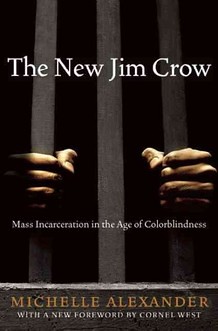 FRESH AIR
FRESH AIR
Under Jim Crow laws, black Americans were relegated to a subordinate status for decades. Things like literacy tests for voters and laws designed to prevent blacks from serving on juries were commonplace in nearly a dozen Southern states. In her book The New Jim Crow: Mass Incarceration in the Age of Colorblindness, legal scholar Michelle Alexander writes that many of the gains of the civil rights movement have been undermined by the mass incarceration of black Americans in the war on drugs. She says that although Jim Crow laws are now off the books, millions of blacks arrested for minor crimes remain marginalized and disfranchised, trapped by a criminal justice system that has forever branded them as felons and denied them basic rights and opportunities that would allow them to become productive, law-abiding citizens. “People are swept into the criminal justice system — particularly in poor communities of color — at very early ages … typically for fairly minor, nonviolent crimes,” she tells Fresh Air‘s Dave Davies. “[The young black males are] shuttled into prisons, branded as criminals and felons, and then when they’re released, they’re relegated to a permanent second-class status, stripped of the very rights supposedly won in the civil rights movement — like the right to vote, the right to serve on juries, the right to be free of legal discrimination and employment, and access to education and public benefits. Many of the old forms of discrimination that we supposedly left behind during the Jim Crow era are suddenly legal again, once you’ve been branded a felon.” On Monday’s Fresh Air, Alexander details how President Reagan’s war on drugs led to a mass incarceration of black males and the difficulties these felons face after serving their prison sentences. She also details her own experiences working as the director of the Racial Justice Program at the American Civil Liberties Union. MORE

